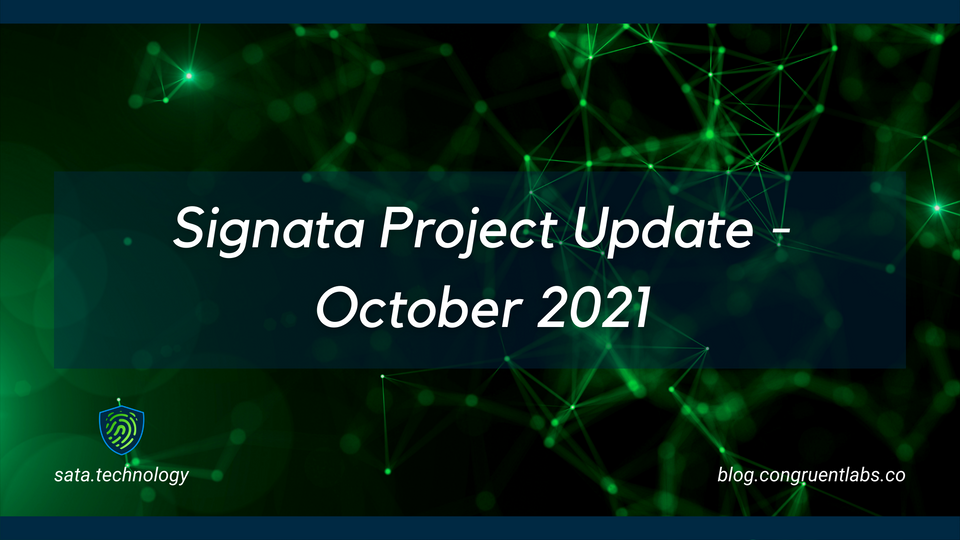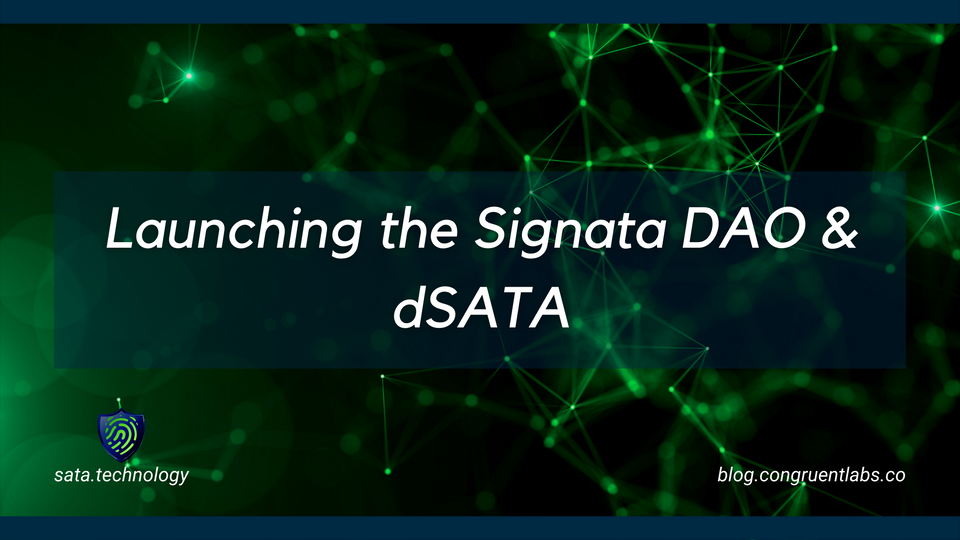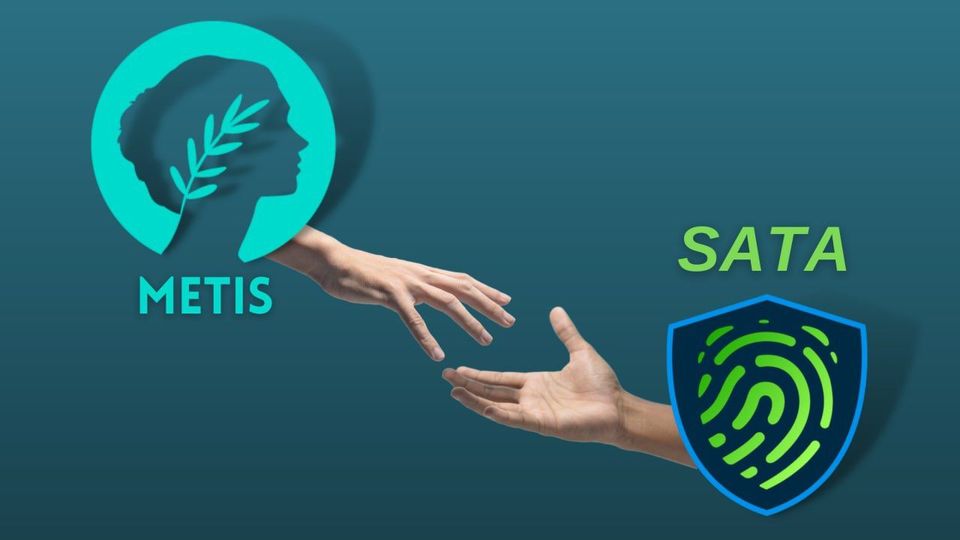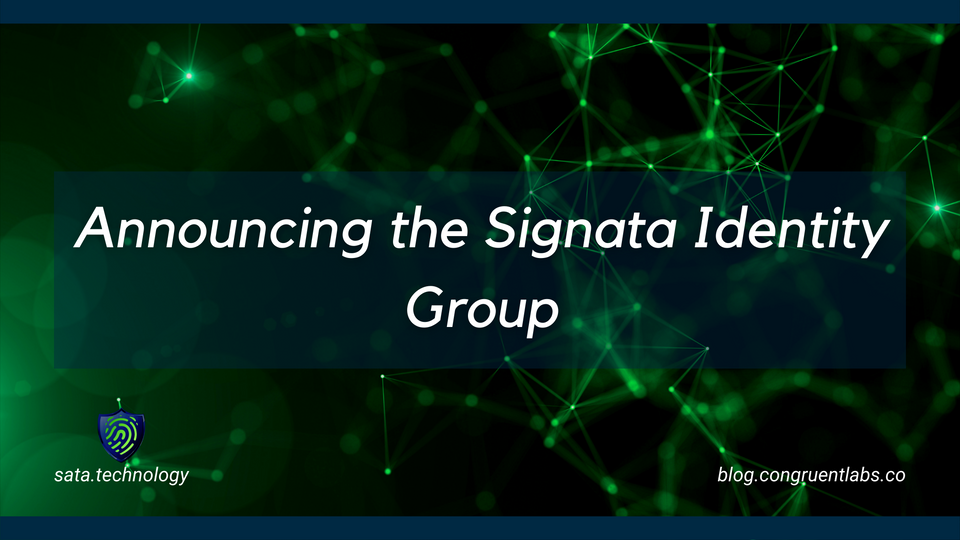As we're coming to the middle of Q4 we're getting busier and busier, but more and more excited as we're starting to cement the vision for what we wanted to build for Signata. Regulators in many jurisdictions are looking at the future of crypto and how identity needs to play a bigger part within it, and we're seeing ourselves at the forefront of providing the tools to meet those regulatory requirements without compromising personal privacy.
Staking Pools & Binance Smart Chain
2 new staking pools went live on the 31st of October, including our first LP provider staking pool.
We tried to get our BSC token live within October but unfortunately there were too many moving pieces to line up the bridge deployment, the token deployment, and the DEX deployment all at once so we've got the official launch happening on the 9th of November instead. Stay tuned for announcements for the launch there, as we'll be including more staking options on BSC as part of the DEX and an AMA by Tim as well!
Chainlink Testing & Dapr
We have built our test service for relaying risk information to Chainlink oracles (more about this can be read here). This service is built on Dapr to provide a unified infrastructure layer for us across multiple cloud services, and we've decided to build all of our infrastructure services on Dapr for the project. Even though we've thoroughly enjoyed building on Firebase we want to insure ourselves against a single provider revoking our systems, either intentionally or accidentally.
Whilst we have built our components for Chainlink, we still are working out the details for testnet deployment of an adapter so we can't yet give any definitive timeframe on when pieces will go live.
Introducing Veriswap
The majority of blockchain transactions between individuals are straightforward. Both parties mutually agree to exchange some value between one another, and tools like Airswap are designed to simplify and secure that interaction through the use of smart contracts. In developing our identity services we realised this is the perfect use case for Signata to be applied to.
So instead of an interactive demo website of our identity solution, we will instead be building a new functional service that we're calling Veriswap. This service will allow two parties to exchange tokens with one another, but also allow them to specify particular rights that need to be held to complete the exchange, and to cancel exchanges if a risk threshold is triggered. These additions will be particularly useful for individuals and organisations that must adhere with more stringent requirements around trades they make, protecting their assets and organisation's compliance requirements.
The secondary value this service will provide is a blueprint on how a fully-functional service can be built on the Signata ecosystem. Our goal is to not be the only people building products within this ecosystem, but to be the reference implementation for others to build upon too.
Unlinked Rights & Identities
One aspect of the design of Signata is a registration process that involves establishing 3 different keys: an identity key, a delegate key, and a security key. Originally we built our smart contract suite to assign NFT rights to an identity key and during that transaction it would verify that the recipient is a "valid" Signata identity (i.e. that it's being transferred to an address with a valid delegate key associated with it).
To achieve greater reach for our solution we've realised we need to relax these rules a little. Particularly to support 3rd party identities interacting with our services. So we've added in provisions to handle cases of NFT rights being assigned to non-Signata identities to free them up. They just won't be quite as capable as fully registered Signata identities regarding lifecycle management.
In addition, unlinking rights from identities also provides for some additional useful capabilities around using ZK proofs for asserting rights, more of which we hope to discuss in more detail soon.
Smart Contract Audits
We've reached out to a reputable smart contract auditor but in the current market there's enormous demand and lengthy waits for audits, resulting in a considerable financial investment required to obtain a report. Whilst that isn't an issue for us to complete, the earlier parts of this blog post that we've talked about mean we need to add and modify some smart contracts and engaging an audit right now will only apply to the current state of the smart contract suite. So to save us effectively paying twice if we make changes, and waiting twice the length of time, we're going to delay the audit and do it all at once to encapsulate all of it.
On our current trajectory we will still engage an audit within Q4 2021, but we likely won't have a report ready until Q1 2022. We will still deploy unaudited contracts to mainnet and release beta services that use them, we just will operate with a disclaimer until the audit is complete. If the audit outcomes require us to make changes to the smart contract suite then we will simply re-deploy and transition our services to use the new set instead.
Signata in the News
October was quiet for Signata in the media, but there was a great article about Decentralized Identity featuring Signata published by Hartmann Capital: https://www.hartmann-capital.com/content/decentralized-identity





